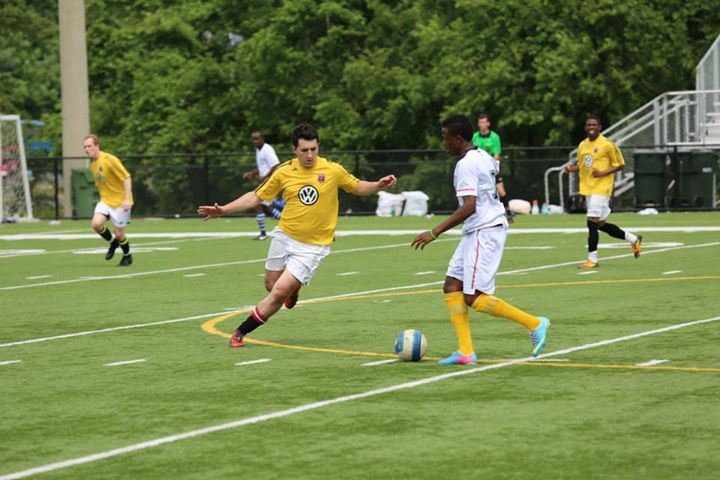A player of Tanzania (white shirt) is closed down by an England Player (yellow shirt) at the Walker Stadium.
Here are some quick thoughts after the England lost to Tanzania 5-1 at Walker Stadium on Sunday June 2nd in group game action. The Diaspora team of England always thought they would not have their hands full against a Tanzanian squad. Observers believed England team was under no pressure to really prepare for the game, after watching Liberia pounded Tanzania 5-1 at the Roy Lester Stadium two weeks ago.
The disillusion was short lived at the beginning of the game when Tanzania began by unfurling the kind of aggressive, intelligent, flowing football England craves. The England team appeared shell-shocked, and it took just 15 minutes for them to fall behind by two goals. Before the game, many believed and for that matter claimed the game offered a chance to test players who have opportunities to prove things to the public. After the game, most of what we learned was negative for England and positive for Tanzania.
The Diaspora World Cup

